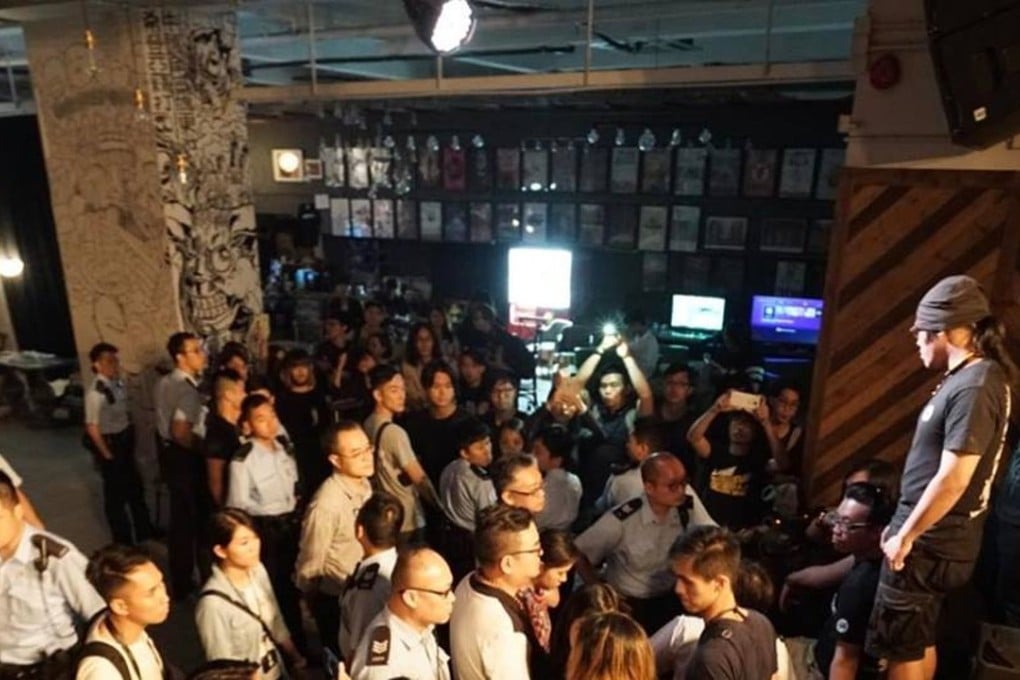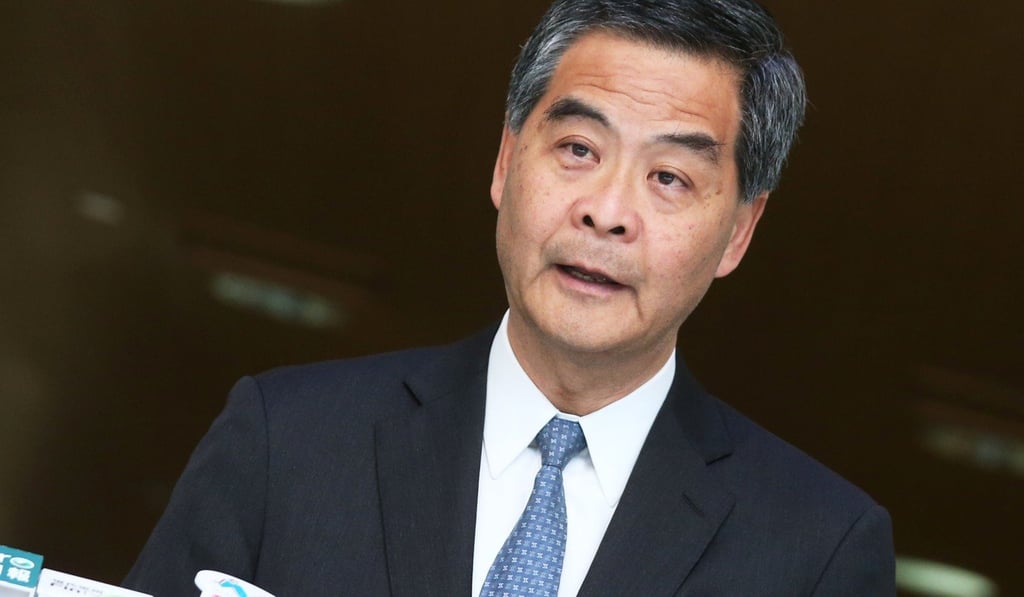Advertisement
Hong Kong leader Leung Chun-ying defends arrests at indie club Hidden Agenda
Chief executive says government ‘must consider safety of buildings’ users’
Reading Time:2 minutes
Why you can trust SCMP

Hong Kong’s top official has defended the arrests of several foreign musicians and the founder of an indie club, saying the city’s rules on immigration and safety at industrial buildings must not be ignored.
Chief Executive Leung Chun-ying was speaking for the first time since immigration and police officers raided Hidden Agenda, a venue in Kwun Tong, on Sunday night.
Seven people were arrested, including the club’s founder, Hui Chung-wo, and three members of British band This Town Needs Guns and an American musician from the group Mylets.
Advertisement

They were all released on bail and told to report back to authorities next month.
Advertisement
The club’s future is now in doubt, with allegations that it held live shows without a public entertainment licence. The musicians were suspected of having breached their conditions of stay in the city by performing without work visas.
Advertisement
Select Voice
Choose your listening speed
Get through articles 2x faster
1.25x
250 WPM
Slow
Average
Fast
1.25x